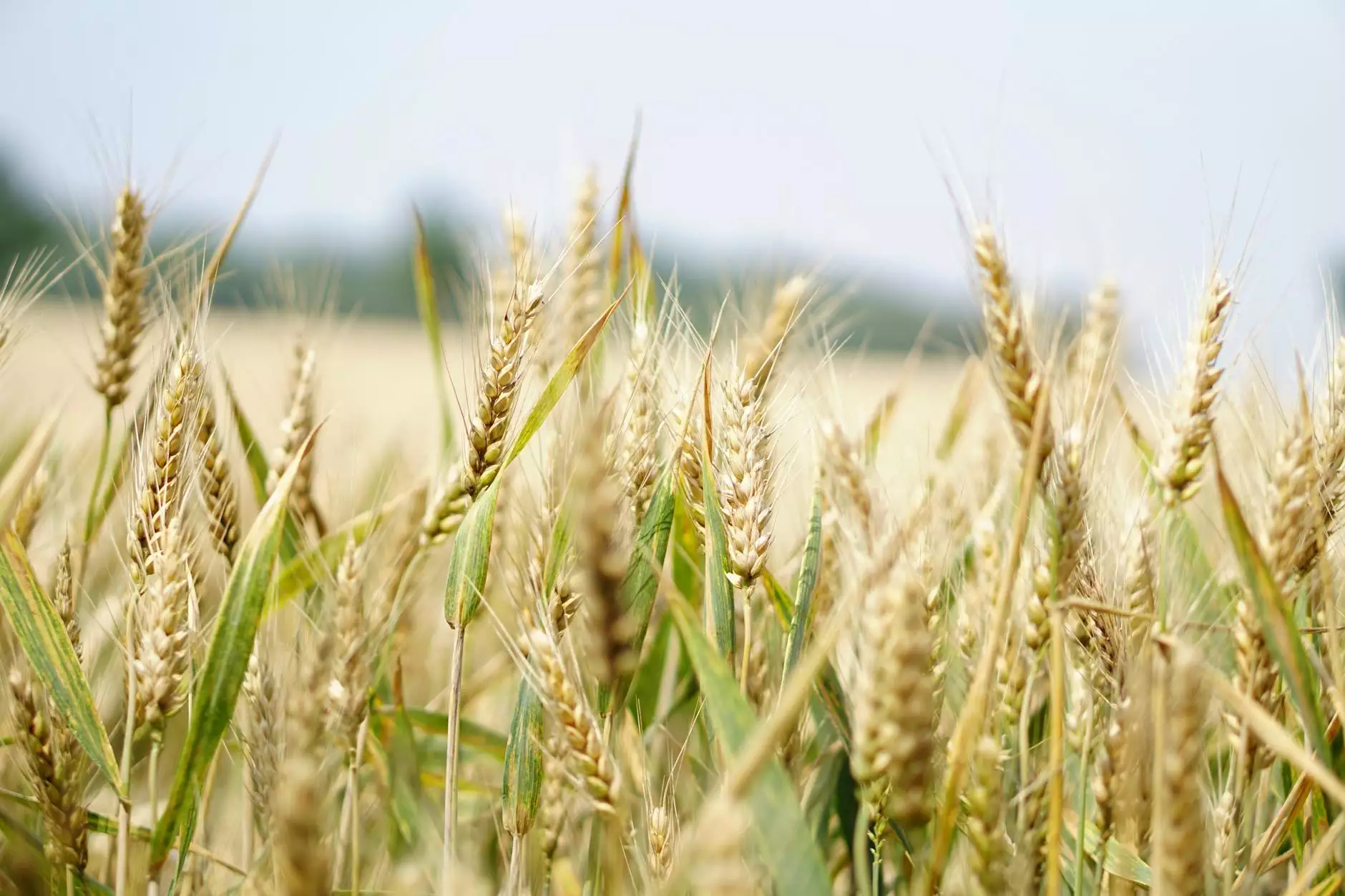Understanding the Importance of Grain Care in Agriculture

In the realm of agriculture, grain care is not a simple afterthought; it is a fundamental aspect of farming that determines the overall productivity and profitability of a farm. Properly managing grain care involves understanding the entire lifecycle of grain production, from cultivation to storage. This article will delve into the importance of grain care, the necessary farming equipment, and tips for maintaining that equipment to ensure optimal performance.
What is Grain Care?
Grain care refers to the practices involved in properly managing grains throughout their lifecycle. This encompasses everything from planting seeds and harvesting crops to storing them effectively to prevent spoilage. Effective grain care leads to higher yields and reduces losses associated with pests, moisture, and contamination.
The Lifecycle of Grain Production
- Planting: Selecting the right type of seeds and ensuring the soil is prepared adequately for sowing.
- Growing: Monitoring the growth conditions, including water, temperature, and nutrients.
- Harvesting: Identifying the right time to harvest to ensure maximum yield and quality.
- Storage: Employing effective methods to store grains to maintain quality and prevent loss.
The Role of Farm Equipment in Grain Care
Farm equipment plays a critical role in grain care. The right machinery not only helps in efficient planting and harvesting but also in maintaining the quality of grains during storage. Below are some key types of farm equipment essential for effective grain care.
1. Tractors
Tractors are the workhorses of the farm. They are versatile and can be equipped with various attachments for seeding, tilling, and harvesting grains. A well-maintained tractor ensures that all operations are performed smoothly, thereby increasing overall efficiency.
2. Combine Harvesters
Combine harvesters are specialized machines designed for harvesting grain crops. They can cut, thresh, and clean the grain in a single operation. This efficiency significantly reduces the time and labor needed for harvesting.
3. Grain Elevators
Grain elevators help in transporting and storing grains. They can handle large volumes of grains and protect them from moisture and pests. Ensuring these elevators are well-maintained is crucial to prevent spoilage during storage.
4. Grain Dryers
Grain moisture content is a critical factor in storage quality. Grain dryers remove excess moisture from harvested crops, helping to extend their shelf life and preserve quality. Regular maintenance of these machines is essential for reliable operation.
Top Grain Care Tips for Farmers
Here are some valuable tips to enhance grain care on your farm:
Regular Maintenance of Equipment
- Schedule periodic check-ups for all your farm machinery.
- Clean equipment thoroughly after each use to prevent residue buildup.
- Replace faulty parts promptly to avoid major breakdowns.
Optimal Storage Conditions
- Store grains in a cool, dry place to prevent mold and pest infestations.
- Use airtight containers to significantly reduce exposure to pests.
- Regularly inspect stored grains for signs of spoilage or pest issues.
Record Keeping
Maintain detailed records of all grain production activities. This includes planting dates, harvest times, moisture levels at storage, and any pest treatments applied. This information is invaluable for improving future grain care practices.
The Economic Impact of Grain Care
Proper grain care not only impacts the quality and quantity of grain produced but also has significant economic implications for farmers. Here’s how:
1. Increased Yields
Effective grain care practices, including optimal planting, timely harvesting, and proper storage, can lead to significantly increased yields. This directly translates into higher revenues for farmers, allowing for reinvestment in their operations.
2. Reduced Waste
By implementing best practices in grain handling and storage, farmers can reduce the natural waste associated with grain production. This reduction in waste can result in substantial cost savings over time.
3. Improved Marketability
High-quality grains yield better market prices. Proper grain care ensures that the grains remain in excellent condition post-harvest, thus enhancing their marketability and ensuring fair prices for farmers.
Investing in Quality Farming Equipment
When it comes to grain care, investing in quality farming equipment can significantly enhance the efficiency of farming operations. Here are key considerations when choosing equipment:
Quality Over Cost
While it may be tempting to choose cheaper equipment, investing in high-quality machinery often pays off in the long run due to lower maintenance costs and improved performance.
Manufacturer Support
Choose equipment from manufacturers that offer excellent after-sales support, including maintenance services and readily available spare parts. This support is vital for ensuring the longevity of your machinery.
Technology Integration
Many modern farming equipment options come equipped with the latest technology that can help in monitoring grain health and production efficiency. Integrating such technologies can streamline operations and improve outcomes.
Conclusion
In conclusion, grain care is an essential practice for farmers that cannot be overlooked. With the right equipment, meticulous maintenance practices, and detailed attention to storage, farmers can ensure that their grain production is both efficient and profitable. Investing in quality equipment and adhering to best practices will lead to improved yields, reduced waste, and greater marketability, garnering a successful farming operation well into the future.
For more information on farm equipment repair and farming equipment, visit tsgcinc.com.









